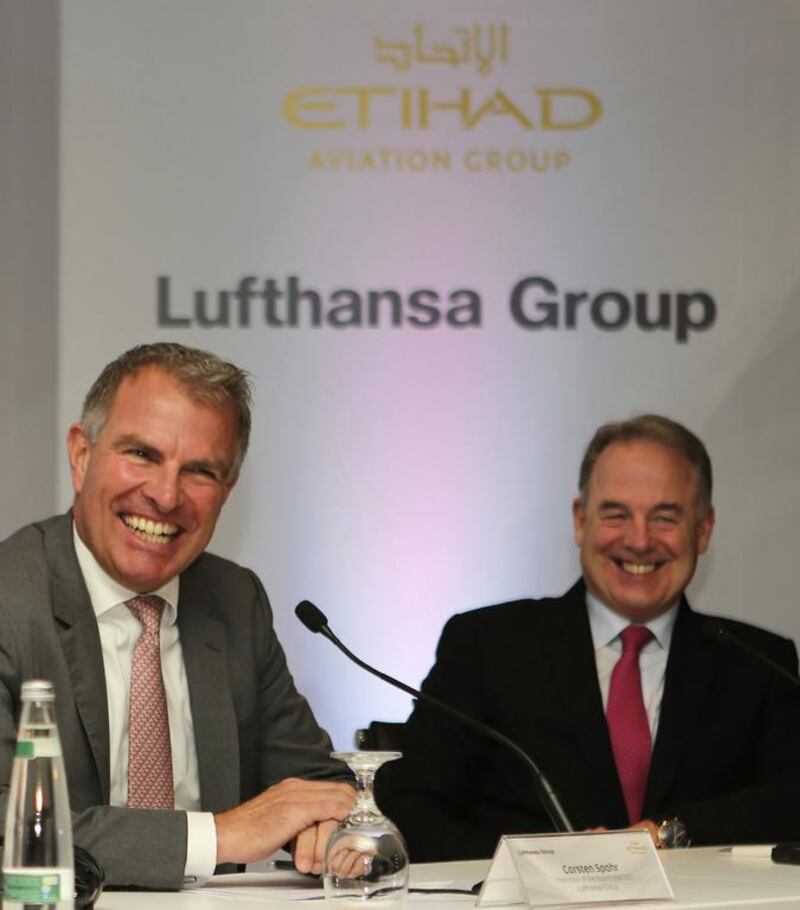The chief executives of the airline groups Lufthansa and Etihad on Wednesday shrugged off concerns that their industry could suffer from a protectionist backlash against free trade. In an ebullient mood at an Abu Dhabi press conference to announce a tie-up in catering and potentially other areas of operation, Carsten Spohr, the chief executive of the German carrier, said that the aviation industry “are the good guys of globalisation. We make globalisation feasible for billions of people around the world”.
“We play a very important part in [making globalisation positive for as many people as possible] beyond aviation itself,” he said.
Etihad’s James Hogan said: “We continue to have dialogues with the GCAA, who in turn have their dialogue with the EU. There are challenges, there’s points of view. What is more important is how does partnership deliver. It’s about connectivity, it’s about jobs and economic contribution. It shouldn’t be about politics.”
Their deal would provide German travellers with many more options and is just the beginning of further cooperation, Mr Hogan said.
Mr Spohr said that while Lufthansa would continue to stand firm on its opposition to what it claims are unfair government subsidies to Arabian Gulf airlines, it was more important to focus on areas of mutual benefit.
This significant commitment to the power of international partnerships is in stark contrast to the souring atmosphere elsewhere with regards to cross border business ties.
The US president Donald Trump’s administration has sent “alarming” signals on trade so far, according to comments made by Germany’s economy minister Brigitte Zypries.
On Tuesday, Peter Navarro, who will head a White House council on trade, said that Germany was using an undervalued euro to exploit the US and its EU partners.
Amid this anti-globalisation shift there has been some concern that the Open Skies row, centred on the subsidies claim, which Gulf carriers refute, may ignite once again.
Earlier this month, Emirates’ reduction of fares for its flights to the US drew criticism from the US airlines group that has been lobbying to limit the growth of its Gulf rivals.
malrawi@thenational.ae
Follow The National's Business section on Twitter






